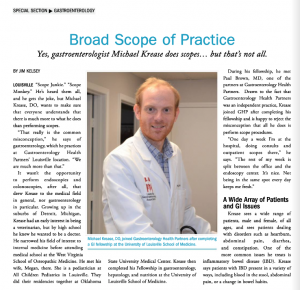Peptic Ulcer Disease (PUD) occurs when a person has chronic peptic ulcers. Peptic ulcers are sores in the stomach or duodenum lining that develop when stomach acid deteriorates the lining. There are several treatment options available for PUD based on the cause of the disease in a particular person.
Here’s what you need to know about Peptic Ulcer Disease.
Causes and Risk Factors
PUD is usually caused by one of two things. First, a bacterial infection from a bacteria called H. pylori can lead to inflammation in stomach lining and eventually cause ulcers. H. pylori can be transmitted from human-to-human contact, food, or water. Second, the long-term use of anti-inflammatory medications including ibuprofen and aspirin can lead to PUD because these medications can inflame the stomach lining.
Risk factors associated with Peptic Ulcer Disease include smoking, which can increase risk of ulcers for people infected with H. pylori, and drinking, which can wear away mucus in the stomach lining and increase stomach acid production.
Symptoms
Common symptoms of Peptic Ulcer Disease include burning stomach pain, nausea, heartburn, bloating, and fatty food intolerance. Burning stomach pain is the most common symptom, and having an empty stomach typically increases pain. While pain may be relieved by eating foods that help buffer stomach acid or taking anti-acid medication, it usually comes back between meals and at night. Notably, while spicy foods and stress may worsen symptoms, they do not cause ulcers. More severe symptoms can include vomiting blood, blood in stool, feeling faint, and trouble breathing. People with severe symptoms should seek medical attention.
Diagnosis
Doctors diagnose PUD through a combination of a person’s medical history, symptoms, medication history, and tests. One test, an endoscopy, uses a hollow tube with an attached lens to view the throat, stomach, and small intestine to visually detect ulcers. Additionally, doctors often perform a test by blood sample, stool sample, or breath test to determine if H. pylori is present. A tissue sample from an endoscopy may also be used in this case. If an ulcer is found during an endoscopy, doctors may take a tissue sample for a biopsy. Lastly, an x-ray is sometimes used for diagnosis- patients drink barium prior to an x-ray to allow doctors to see internal organ detail.
Treatment
Treatments for PUD vary. For ulcers caused by H. pylori, antibiotics can help kill the bacterium through two weeks of treatment. Thereafter, antacid medication may be used to control stomach acid for the patient. Another treatment utilizes proton pump inhibitors, medications that reduce stomach acid by blocking cell production of acid. Another medication group used for treatment is H2 blockers, which reduce stomach acid along with reducing pain and helping healing. Lastly, antacids, medications that neutralize stomach acid, may be used to help relieve symptoms.
Lifestyle changes are also an important part of treating Peptic Ulcer Disease. Avoiding smoking and alcohol can help reduce risk factors that lead to and worsen PUD. Managing stress can help too- relaxation and exercise can help lower stomach acid production. Lastly, changing diet can help treat PUD too. Unhealthy choices like junk food, fried food, and processed foods make it harder to heal, while whole grains, fresh produce, and fresh fruit may promote healing.
Our experienced team at GHP can help you get the treatment you deserve for PUD. We can help you establish the best plan of care for your situation. Contact any of our office locations learn about the options we offer and schedule an appointment today.





